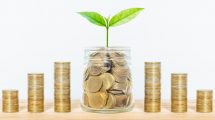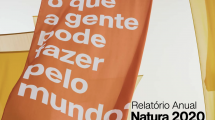Francisco Nilson Moreira Costa e Silva
With the hashtag #action2015 Ban Ki-Moon called for world leaders to act in favor of Sustainable Development, or SD for those who are familiar with it, in his Road to Dignity report at the end of 2014. In fact, this year will be notable for the subject, so the Secretary General of the UN and other heavyweights of the SD like Jeffrey Sachs bet on 2015 as the year of international system’s aggiornamento. Such a course correction proposal depends mainly, but not only, of two things: convergence of agendas and strong leadership. The UN’s chips are on their commander’s ability and the converging agendas of international politics.
We have already commented about this convergence in “Legacy of Rio+20: politics, business and people”, published as chapter in the book organized by Ana Paula Arbache and Fernando Arbache “Corporate sustainability in Brazil: scenarios and projects”, in 2012. Written in immediate post-Rio+20, the text explains this new moment that would still unveil as a possibility and this year may become real. Accordingly, Rio+20 worked as a landmark, or a starting point, as crystallized in the speeches of Brazil’s Ministry of Foreign Affairs. Basically, Brazilian diplomats see Rio-92 as an ending point, in other words, after more than 20 years of debate on environment and development (Rio-92 was not accidentally named United Nations Conference on Environment and Development), it was already mature enough among experts for some more robust agreement be signed. Thus, five important documents resulted from Rio-92, two of them binding: the Rio Declaration on Environment and Development, Agenda 21, the Statement of Principles on Forests, Convention on Biological Diversity (binding) and the Framework Convention on Climate Change (binding).
At Rio+20, agreements in the same amount and political weight like in Rio-92 could not be signed. However, the 2012 Conference was able to put the SD back on the top of the international agenda and the UN worked hard in recent years to make minimally palpable what was pointed as a direction to be followed in the document “The Future We Want”, a result of Rio+20. Those advancements we are going to see over the next months, when we will have a conference on finance for development, the approval of the Sustainable Development Goals, the entry into force of the Nagoya Protocol on Biodiversity and the Conference of the Parties to the Framework Convention on Climate Change. So what will happen this year is a result of Rio+20, in a certain way.
Almost like in a soap opera script, the second half of 2015 promises strong emotions to SD lovers. There will be shocking news about our unresolved past, the suffering will be close to the limits of tolerance and promising futures shall drip off through the drain or materialize in a big wedding with beautiful images and a serene end. However, already seasoned by soap operas, we know that this will not be the end but the beginning of a new cycle, better or worse, depending on the writer. Add to this plot a poorly
healed international economic crisis and various geopolitical disorders, such as extremism and fluctuations in oil prices.
From July 13th to 16th, world leaders will meet in Addis Ababa, Ethiopia, for the Third International Conference on Financing for Development. This will be great opportunity to discuss reforms in the international financial system and restrict funding to projects and activities considered unsustainable. Also will be a top priority ensuring one of the elements that were missing to the Millennium Development Goals (MDGs) and the negotiations on climate change: MONEY from predictable, reliable and relatively abundant sources. Like any good villain, financial insufficiency may stifle already at birth the COP-21 results in Paris on climate change and the Sustainable Development Goals (SDGs), successors of the MDGs.
Between September 25th and 27th, during the 70th UN General Assembly, its Member States shall approve the mentioned Sustainable Development Goals, one of Rio+20’s unfoldings. Basically, it’s about a set of 17 measures to be adopted by countries between 2015 and 2030, in order to put the humankind in fact on the path to Sustainable Development. Critics consider the SDGs only a set of good intentions without consistent implementation mechanisms that do not question the idea of a supposedly infinite economic growth; the insatiable need for consumption; and the profoundly unequal accumulation of capital, that is also exhaustive to the natural capital. The relative success of the MDGs may not be inherited by the SDGs, especially because the way towards sustainable development depends on a shake-up and deep redesign of the actual system, which would possibly occur with turbulence and resistance. Without that, say the critics, the SDGs will be more of the same in a greener version.
October, specifically on its 12th, will also require attention, because it will put into effect the Nagoya Protocol on Access to Genetic Resources and the Fair and Equitable Sharing of Benefits Arising from their Utilization (ABS) to the Convention on Biological Diversity, an essential document signed at Rio-92. This theme is especially valuable to the group of countries that concentrate significant part of the planetary biodiversity within their territories – Megadiverse countries, which includes Brazil as one of its leaders. However, as we have already reported, the current government did not give due priority to this agenda, even though being a leader for over the last 20 years in the negotiations, and the Protocol will enter into force without the Brazilian ratification. Loses international persuasion power the Brazilian Foreign Ministry; loses the directly affected communities and businesses in Brazil, because they would remain waiting; loses the international community by seeing a historical leader downed, due to the current government’s lack of priority sense on the subject.
After to the warmest year in history (2014), between November 30 and December 11, 2015, world leaders will attend the 21th Conference of the Parties (COP-21) to the United Nations Framework Convention on Climate Change, another result of Rio-92, when it is expected a global agreement on reducing emissions of greenhouse gases between 2020 and 2050. Besides being a long-awaited and postponed agreement, COP-21 can put a 4×4 in the “climate stagflation” quagmire we now face, in other words, low economic growth with high emissions of greenhouse gases. The theme of our lifestyle decarbonisation is controversial and full of intricacies, because it involves new
international energy architecture. As energy is the basis of our civilization, few are brave enough to push the first in a series of aligned dominoes (our quality of life, in this case). The chain reaction (or non-reaction) can lead us to a better or worse civilizational leap.
After all it seems inevitable that 2015 would become the year of Sustainable Development. We will follow up, to see if the convergence of agendas and the leadership of Ban Ki-Moon will bring new impetus to the storyline, in order to finally begin the era of Sustainable Development. #action2015
Francisco is Bachelor in Biological Sciences, Postgraduate in International Relations and Master in Sustainable Development. Worked in the Brazilian Mission to the UN in Geneva, was Coordinator Sustainability at the National Organizing Committee of Rio+20, UN consultant and director of the Economic and Social Development Council of the Federal District. Currently is entrepreneur at Ecosintonia, a Sustainable Development consultancy.









Deixe seu comentário